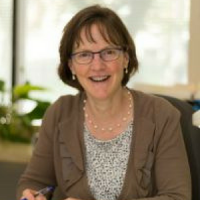Grieving sucks. I’m just sayin’. It’s hard. We don’t get over a deep loss. We go through it, each in our own unique way and in our own time. Yet we share some commonalities with all human beings who suffer loss.
Our First Church community is grieving. Several deaths of dear members happened over the last two months. And several serious diagnoses occurred, sending many circles of an individual’s community into worry, and perhaps, anticipatory grief.
How do we grieve as a people? How do we hold the circle of community in wholeness, when so many hearts are breaking?
There is no one answer. There is no perfect prescription. Contrary to previous grief theory, people do not move through clearly
defined stages of grief in a predictable manner. Current grief specialists say that the stages of grief theory is not accurate, and if we expect ourselves to follow it, we may feel even worse.
Dr. Alan Wolfelt, Director of the Center for Loss and Life Transition in Fort Collins, Colorado suggests that mourners have six needs, which may or may not arise in numerical order.
Need 1. Acknowledge the reality of the death.
Need 2. Move toward the pain of the loss.
Need 3. Convert the relationship with the person who died from one of presence to one of memory.
Need 4. Develop a new self-identity.
Need 5. Search for meaning.
Need 6. Continue to receive support from others.
How are we a people of wholeness? When we are broken open by loss, we hold space for one another to grieve. We do not hurry each other into healing. We do not tell someone else what their loss means, we listen to the meaning they are making. And we trust the wholeness of life when someone who is grieving cannot. I am grateful for the ways in which you have done this for me, and am continually moved by how our community does this for each other.
